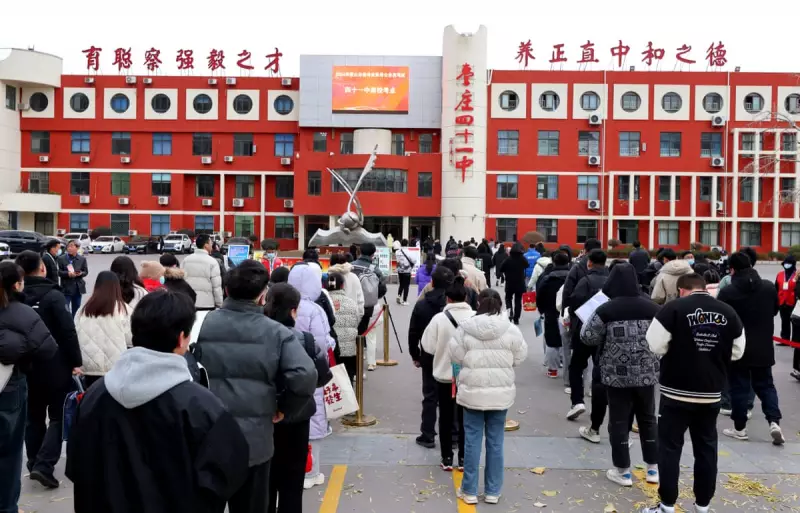
Millions Chase the 'Iron Rice Bowl' in China's Public Sector
A staggering 3.7 million people in China are preparing to sit for the national civil service examination this weekend, setting a new record for the number of applicants. This massive turnout underscores a significant cultural and economic shift, as millions seek the stability of government employment over the perceived risks of the private sector.
Intense Competition and Key Changes
The millions of hopefuls will be competing for a mere 38,100 available positions across the country. This translates to an average of 97 applicants for every single job, illustrating the intense competition. Some roles are even more sought-after; one immigration officer position in the city of Ruili received applications from 6,470 approved candidates.
A key change this year is the increase in the age limit for applicants. The general candidate age limit has been raised from 35 to 38, while the limit for those with postgraduate degrees has increased from 40 to 43. This adjustment aligns with recent government moves to raise China's official retirement age in response to an ageing population and pressures on the pension system.
Economic Pressures Drive Public Sector Appeal
This rush towards public sector careers is largely driven by economic uncertainty. While public sector wages are often lower and some local authorities have struggled with payments, the jobs are coveted for their security, often referred to as the 'iron rice bowl' – a term from the Maoist era meaning a job for life.
This trend marks a reversal from the period of 'reform and opening up', when ambitious workers would 'jump into the sea' (xiahai) of private enterprise. Now, the goal for many is to 'land ashore' (shangan) by securing a stable government role.
George Magnus, a research associate at Oxford University’s China Centre, explained the structural shift: "The occupational structure of China’s job market has shifted markedly over the last decade or so away from high-pay, high-skill jobs towards low-pay, low-skill in the gig and informal sectors." He added that with 12 million graduates entering the market annually, the preference for secure government jobs is understandable.
The economic backdrop is challenging. China's general unemployment rate stands at 5.1%, but the figure for 16- to 24-year-olds (excluding students) is a concerning 17.3%. The combination of a trade war, weak post-pandemic consumer demand, and a record number of graduates has left many young people opting to 'lie flat' rather than accept jobs they feel are beneath their qualifications.
The civil service exam itself is notoriously difficult, covering law, physics, biology, politics, and reasoning. A new section on political theory tests candidates' understanding of Communist party doctrines and President Xi Jinping's major speeches. For many, like a 35-year-old mother who shared her gruelling study schedule online, preparation involves immense sacrifice, including pre-dawn starts and as little as four to five hours of sleep per night.





